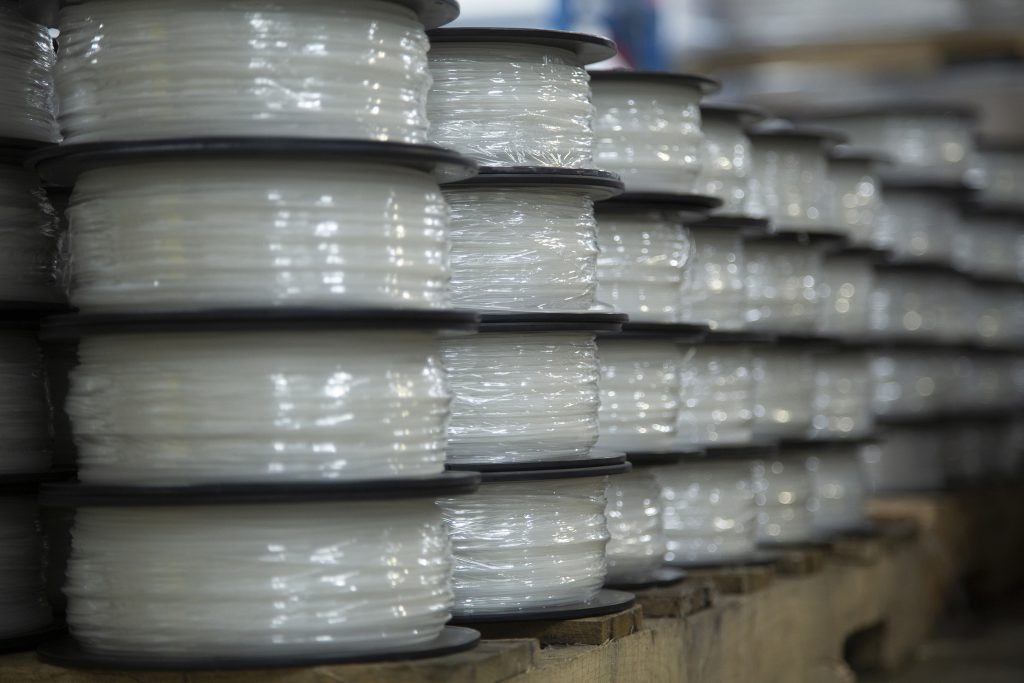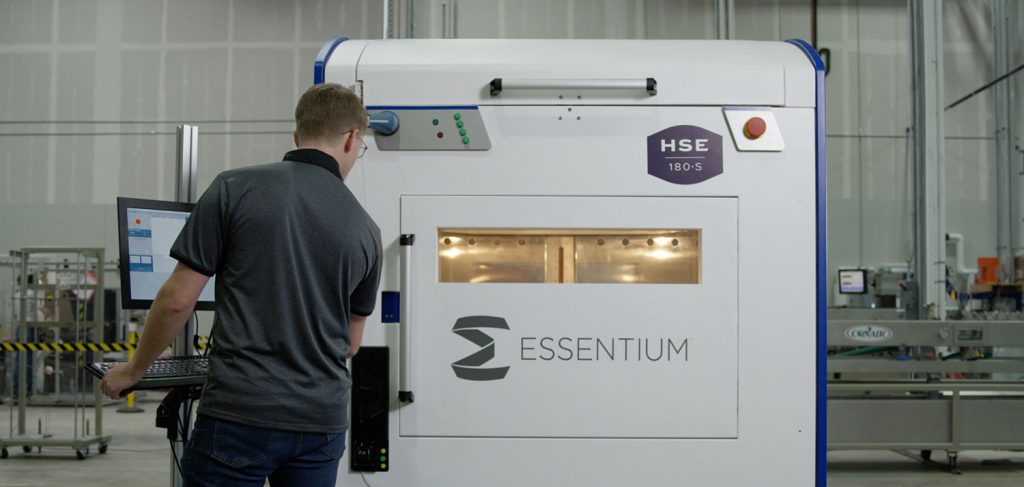Worldwide manufacturing services company Jabil, headquartered in St. Petersburg, Florida, has a filed a lawsuit against Texan 3D printer provider Essentium Inc. The main claim made by the company is that founding members of Essentium have plagiarized the design for their High Speed Extrusion (HSE) 3D printer from IP developed during prior employment at Jabil. The complaint was filed June 28, 2019 and is seeking a jury trial.
The official document filed by law firm Greenberg Traurig on behalf of Jabil sates, “Simply put, Essentium has stolen Jabil’s trade secrets and capitalized on confidential information that Jabil invested thousands of hours over a period of years and millions of dollars to develop.”
Further, in the nature of action, it states, “Essentium’s HSE printers are, foundationally, outdated iterations of Jabil’s TenX.”
Commenting on the case Michelle Smith, Vice President of Corporate Communications at Jabil, told 3D Printing Industry, “As a global leader in additive manufacturing, Jabil is committed to protecting our intellectual property in our cutting-edge 3D printer innovations,”
“The misappropriation of our confidential designs, vendor relationships, and other trade secrets by these former employees alleged in the lawsuit necessitated Jabil to protect our substantial investment.”
Essentium has since responded in a letter from the Chairman of the Board Steve Birdwell, “This action,” Birdwell states, “is entirely without merit, and we are responding to it aggressively,”
“Our corporate values are based around trust, service, transparency, and innovation. We have never detracted from these values.”
About Jabil
Incorporated in 1969 as a manufacturer of PC components, Jabil has grown into an organization employing 170,000 people worldwide across 100 plants in 28 countries.
In additive manufacturing, the company is privileged as often one of the first to try any technologies new to the market. In 2016, it became the first North American company to receive HP’s Multi Jet Fusion 3D printers, and the follow year it was the first commercial customer of Nano Dimension’s DragonFly 2020 3D printer.
Most recently, the company has also established its own Materials Innovation Center to develop filaments and powders for 3D printing.

Jabil’s complaint and allegations
The claims made by Jabil date back prior to 2016 when some members of the Essentium founding team were employed at Jabil. Erik Gjovik, Essentium’s current CPO, Greg Ojeda, the company’s former CCO, Terry MacNeish, head of R&D, and Lars Uffhausen, Essentium CCO and CFO were all hired by Jabil for the expressed purpose of bringing a confidential project to fruition. The project in question is the development of the so-called “TenX” 3D printer.
In the time of its development Gjovik was Jabil’s Director, then Senior Director of Engineering Services in Additive Manufacturing. Ojeda worked in managerial and directorial roles within Jabil’s additive manufacturing Ecosystem Development and Strategy. MacNeish was hired by Jabil as a Principal Design Engineer of the TenX, and Uffhausen worked also as a contractor for the company.
Based on fused filament fabrication (FFF) the TenX, according to Jabil “offers substantially more speed and flexibility than its legitimate competitors.” With Essentium HSE’s claims of being “10 times faster than the competition” the plaintiff alleges that this system has been built using confidential information obtained by Gjovik, Ojeda, and MacNeish in their time working for Jabil. The complaint also states, “Indeed, in an audacious nod to the true origin of its printers, Essentium continues to boast in its advertisements that its HSE printers operate at “10X” their competitors’ speed.”
At the time of these developments, Essentium was intitially known as Essentium Materials, and made filaments for FFF 3D printers. According to the plaintiff Gjovik, Ojeda, and MacNeish “were conspiring against” Jabil in an attempt to license the TenX 3D printer to Essentium before they joined the company.

About Essentium
Essentium Materials was formally founded in 2013, however Essentium Inc., the company responsible for providing the HSE 3D printer was incorporated in October 2018 after all defendents had left their posts at Jabil. The forthcoming release of the HSE system, named the 180-S, was announced by Essentium in April 2018, and the machine was exhibited to the public for the first time at RAPID + TCT 2019. Following $22.2 million in series A investment, the company has plans to expand its workforce up to 200 employees over the next five year.
As it stands, Jabil is seeking various damages from the Essentium team including for actual loss, consequential damages, compensation, and attorney’s fees. The value of these damages is to be determined in court should the case be ruled in favor of Jabil’s complaint.
For all legal and regulatory updates from 3D Printing Industry subscribe to our newsletter, like us on Facebook and follow us on Twitter. Visit 3D Printing Jobs for new opportunities in additive manufacturing.
Featured image shows inside a Jabil production facility. Photo via Jabil
Note: This article has been edited since its initial publication to record official comment from Michelle Smith, Vice President of Corporate Communications at Jabil.
On July 23, 2019, further amendments were made to include comment from Essentium Chairman of the Board Steve Birdwell.


